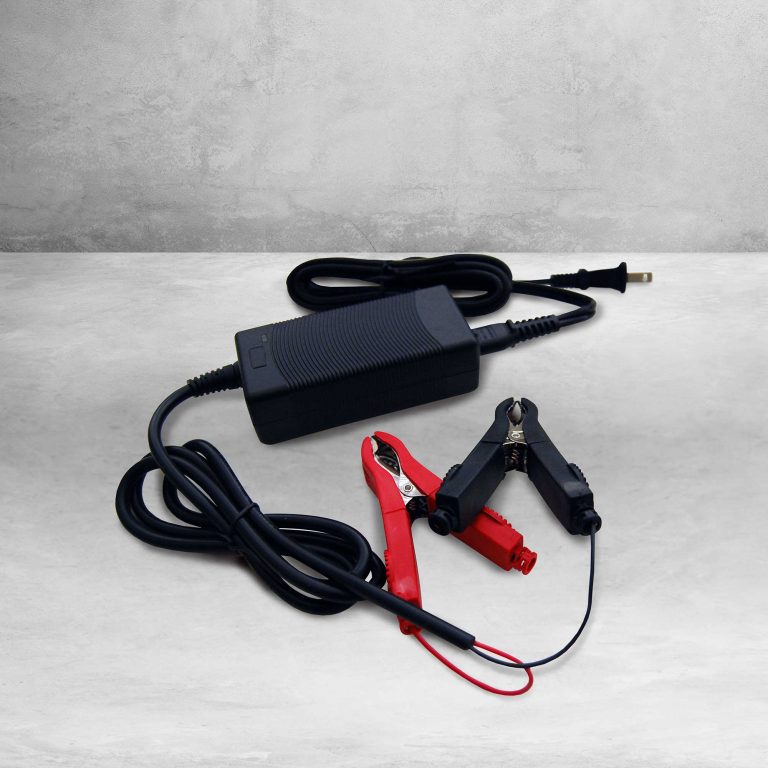The ubiquitous 12V battery powers many devices, from the familiar car battery to the trolling motor propelling your fishing boat. While these applications might seem vastly different, they all rely on the same essential technology: the 12V battery charger.
In this blog, we'll delve into 12V battery chargers, unraveling their mysteries and empowering you to choose the correct charger for your needs. Whether you're a seasoned automotive enthusiast or a weekend boat enthusiast, this guide will equip you with the knowledge to keep your batteries and equipment running smoothly.
Understanding the Basics: 12V Batteries and Chargers
Before diving into the specifics of chargers, let's review the basics of 12V batteries. These batteries comprise six cells, each generating 2.1 volts for 12.6 volts. Over time, the battery discharges through use, and the voltage drops. A 12v battery charger replenishes the lost energy, restoring the voltage to optimal levels.
Chargers come in various types, each with its unique features and capabilities. Some popular options include:
- Standard chargers are the most basic and affordable chargers, suitable for maintaining the charge of car batteries and other lead-acid batteries.
- Smart chargers: These chargers are more sophisticated and feature automatic shut-off functions to prevent overcharging and damage to the battery. Additionally, some intelligent chargers offer features such as desulfation, extending older batteries' lifespan.
- Lithium chargers: These chargers are specifically designed for lithium batteries, which require a different charging profile than lead-acid batteries.
- Multi-bank chargers: These chargers can charge multiple batteries simultaneously, making them ideal for workshops, marinas, and other settings where various batteries must be maintained.
Choosing the Right Charger for Your Needs
Choosing the suitable 12V battery charger depends on several factors, including:
- Battery type: As mentioned earlier, different batteries require different chargers. Ensure your charger is compatible with the kind of battery you're using.
- Battery capacity: Larger batteries require chargers with higher amperage ratings to ensure efficient charging.
- Desired features: Consider what characteristics are essential to you, such as automatic shut-off, desulfation, or multi-bank charging.
- Budget: Battery chargers range in price from under $50 to several hundred dollars. Determine your budget and choose a charger that offers the features you need at a price you can afford.
Dakota Lithium Batteries: The Superior Choice for Demanding Applications
Dakota Lithium batteries are the ideal choice for demanding applications requiring reliable and long-lasting power. These batteries offer several advantages over traditional lead-acid batteries, including:
- Longer lifespan: Dakota Lithium batteries boast a significantly longer lifespan than lead-acid batteries, lasting up to 10 times longer.
- Lighter weight: Lithium batteries are considerably lighter than lead-acid batteries, making them ideal for applications where weight is a concern, such as motorcycles and boats.
- Faster charging: Dakota Lithium batteries can be charged much faster than lead-acid batteries, minimizing downtime.
- Deeper discharge: Lithium batteries can be discharged much deeper than lead-acid batteries without damaging the battery.
Powering Your Diverse Needs
The 12V batteries and chargers are crucial in powering various applications beyond cars. Let's explore some specific applications:
- Cart and golf cart batteries: These batteries provide the energy needed to operate golf carts and other electric vehicles.
- Deep cycle batteries are designed for applications requiring sustained power delivery, such as marine trolling motors, RV appliances, and solar power systems.
- Trolling motors: These electric motors propel fishing boats and require reliable battery power for smooth operation.
Choosing the Right Charger for Your Specific Application
When selecting a 12V battery charger for these applications, consider the specific needs of your equipment. For example, a trolling motor charger should be able to deliver enough power to run the motor at full speed for extended periods. Similarly, a deep cycle battery charger should be designed to maintain the battery's health and prevent damage from deep discharges.
Conclusion
By understanding the basics of 12V batteries and chargers, you can make informed decisions about selecting the right equipment for your needs. Whether you're a seasoned car enthusiast, a weekend boat owner, or rely on 12-volt battery chargers.


No comments yet